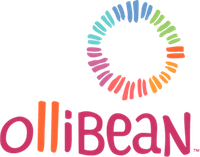We started Ollibean in 2010 to connect with families that were lovingly and respectfully raising children with and without disabilities .
We wanted more information about how to help our son live a happy life with respectful support and access to the same educational and social opportunities his sisters have.
We didn’t see families like ours reflected in mainstream media and when we did the narratives were ones of tragedy, burden, and inspiration. None of those narratives were accurate depictions of our lives.
We are committed to changing the negative dominant narrative about parenting disabled children into what we know to be true both with our own family and our friends. We have awesome families, with kids who are adored and accepted for who they are, not in spite of their disability.
Ollibean is a positive space to connect and share resources to learn how best to support and empower our disabled children in a world that is not yet fair and inclusive. We do this by learning from and amplifying the voices of the experts on disability — disabled people. Our content is centered on full inclusion and acceptance, disability pride and culture, neurodiversity, parents who embrace and accept their children, autism and disability rights.
We’re doing our part to make sure that our children grow up in a socially just world where ALL people are valued and included .
Ollibean connects families, advocates,and professionals in the disability community to help create online and offline communities .
Changing the Paradigm
When your child receives a diagnosis so much of the information you receive is built on the pathology paradigm and the medical model of disability.
The most knowledgable experts on disability are often missing from the information that parents receive. The experts on the lived experience are disabled people.
You and your child can access Thought Leaders in the disability community here.
Learn about the Social Model of Disability and the Neurodiversity Paradigm.
Together we can do more than we can ever do alone.
You can read more on Identity First Language and Person First language here and here.
We believe all children should grow up feeling loved, accepted and whole.
Who can argue with that?
You might be unaware of the discrimination that people with disabilities face every single day. We were.
Many adults with disabilities have spoken about the direct and indirect messages they received growing up – that they needed to be fixed, needed to appear less disabled to be considered whole. If we have not experienced this type of discrimination, we cannot fully understand the multitude of ways this impacts one’s sense of self. But, when we listen and learn from those who have, we can consciously support our children through the situations they will face.


